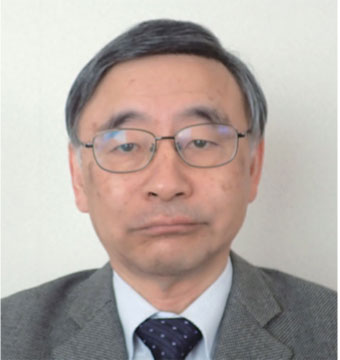Distinguished Achievement and Contributions Award

Dr. Hirosuke Yamamoto graduated from the Department of Electrical Engineering, Shizuoka University in 1975, and received his PhD degree in electrical engineering from the University of Tokyo. After that, he became a research associate (1980), lecturer (1981), and associate professor (1983) at the Department of Electronic Engineering, Tokushima University, associate professor at the Department of Communications and Systems, University of Electro-Communications (1987), and associate professor at the University of Tokyo (1995). Then he was promoted to professor at the University of Tokyo in 1999. He went on to become a professor at the Graduate School of Information Science and Technology (2001) and professor at the Graduate School of Frontier Sciences (2004) of the same university. He retired from the University of Tokyo in 2018. Currently, he continues his research and educational activities as professor emeritus of the University of Tokyo, visiting professor at School of Fundamental Science and Engineering, Waseda University, and visiting institute professor at Research and Development Initiative, Chuo University.
During these periods, Dr. Yamamoto has been engaged in trailblazing research into a wide range of information theory, including Shannon theory, feedback communication theory, information-theoretic cryptography, multi-user information theory, and data compression algorithms. He has also made valuable contributions to the education of students, assisting numerous talented researchers and engineers who have gone on work in academia and industry.
In the area of feedback communication theory, in 1980, he developed Hybrid-ARQ Viterbi decoding for convolutional codes. This method is now widely used by mobile phones for data communication. In 1979, he devised a two-stage communication scheme, which can achieve the highest reliability function. It is now a well-known basic coding scheme that uses feedback to reach the theoretical limit.
In the area of information-theoretic cryptography, he developed a strongly secure ramp secret sharing scheme in 1985. A feature of this scheme is that it can execute secret sharing of information more efficiently than conventional schemes. He has also proven coding theorems for a variety of information security coding systems, such as secure coding of correlated information (1983), rate-distortion theory for the Shannon cipher system (1997), a strongly secure network coding scheme (2008), and efficient secure multiplex coding for wiretap channels (2013). In this way, he has led the advancement of theories in this field.
He has made a number of groundbreaking contributions in the field of multiuser information theory, which is the field of Shannon theory for network communication systems. Specifically, he proved the rate-distortion theory for multi-hop communication systems for the first time in 1980. He was also the first to deal with communication systems that are currently associated with the COE coding problem.
In the field of data compression algorithms, in 2015, he developed almost instantaneous FV coding using multiple code trees and showed that this coding yields a better compression rate than Huffman coding, which for 60 years had been considered to provide the best compression rate. In addition, he presented novel coding schemes and coding theories for competitively optimal codes, integer coding, lossy compression by LDPC codes, and almost instantaneous VF codes.
For these achievements, he received the Best Paper Award and the Achievement Award from the IEICE and was appointed as an IEICE fellow and an IEEE life fellow.
Dr. Yamamoto has held important posts within the IEICE, including auditor, president of Engineering Sciences Society, Editor-in-Chief of IEICE Transactions A, and chair of the Technical Committee on Information Society. He has also been a dedicated supporter of the global development of information theory by serving twice as chair of the Technical Program Committee for ISITA (International Symposium on Information Theory and Its Applications), and by serving as an associate editor for IEEE transactions on Information Theory.
As mentioned above, Dr. Yamamoto’s contributions to the development of the IEICE and the electronic information communication field based on information theory are outstanding, and without reservation we believe that Dr. Yamamoto is worthy of receiving the Distinguished Achievement and Contributions Award from the IEICE.